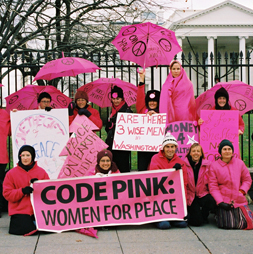- About
- Topics
- Story
- In-Depth
- Picks
- Opinion
- News
- Donate
- Signup for our newsletterOur Editors' Best Picks.Send
Read, Debate: Engage.
| August 30, 2018 | |
|---|---|
| topic: | Humanitarian Aid |
| tags: | #Horn of Africa, #anarchy, #Africa, #human rights, #women's rights |
| located: | Somalia |
| by: | Bob Koigi |
But a mother and her daughter have taken on the Herculean task of restoring the faded glory of the East African nation, while giving hope, safe haven and new lease of life to thousands who have been caught in the crossroads.
In the mid-1990s as the civil war reached fever pitch, a renowned peace activist Elman Ali actively pushed for a campaign he dubbed ‘Drop the gun, pick up the Pen’, which focused on equipping young people with education to shield them from war at a time when the militia was actively recruiting children to join war zones. Working with his wife Fartuun Adan, they would rescue orphans while running another campaign, ‘Lights for Peace’ that was involved in lighting the city’s dark alleys that were in the hands of warlords. Elman would later be shot in the back by masked gunmen in a cold-blooded assassination that invited international furore. International rights group Amnesty International, in a report, eulogised him as the father of peace and a towering figure of reconciliation.
“A businessman with a vehicle repair-and-recovery service, he had established a technical training institute to rehabilitate young militia fighters with skills to turn to peaceful livelihoods. He was known for giving humanitarian assistance to orphans and street-children and contributing to reviving community facilities such as electricity and roads. Elman Ali Ahmed’s murder has sent a chilling message to Somalis desirous of peace and normality -- that no one is safe”, the body said in a statement.
Shaken by the assassination, Fartuun fled the country and sought refuge in Canada with her three children. But the desire to continue her work saw her return to Somalia in 2007. Her daughter Ilwad Elman on a visit to Mogadishu in 2010 would be so moved by the marked contribution of her mother’s efforts to the most vulnerable, that she decided to stay. Together they run The Elman Peace and Human Rights Centre, an organisation that fosters lasting peace by addressing the underlying causes of conflict. A major component of their initiative has been to rehabilitate child soldiers and youth who have left Al Shabaab. With the majority of these child soldiers having missed out on education, and with schools having been destroyed during war, the centre has been running programmes that train the youth on skill-oriented courses that empower them to seek decent jobs and sustain their livelihoods. It reaches over 800 children each year with 80 per cent of those who express interest in various courses graduating with requisite skills that have changed their lives.
But the scale of the more than three-decade war has been felt by women and children with the majority having had to live with the scars of rape which include children born out of the ordeal.
To respond to the crisis, Fartuun and Ilwad also run, Sister Somalia Initiative, the first of its kind rape crisis centre that provides a safe haven for victims of sexual violence, forced marriages and rape. The centre offers comprehensive counselling, business skills training and medical services. Victims freely share their harrowing experiences from being raped by army officials to being burnt with hot objects after rape, a common occurrence which has been chronicled by international rights bodies like Human Rights Watch in a damning report.
The painful experiences have seen a spike in mental illnesses, with one in three Somalis having mental problems, a number higher than that of other war-torn countries according to a World Bank report. It is such problems that Fartuun and Ilwad confront on a daily basis. They have however remained true to their course and have assisted over 8,000 female survivors.
But their work involves flirting with danger, in a country that still frowns at returning diaspora due to the belief that they would introduce alien ideologies, where women are still marginalized and gender violence is discussed in hushed tones.
While the duo’s driving force has been to make Somalia a safe place for everyone and empower the citizenry, the world hasn’t been blind to their passion and service to humanity.
They were finalists in the 2017 Aurora Prize for Awakening Humanity, an initiative that highlights global atrocities and celebrates those working towards eliminating them. In 2012, Fartuun was honoured with an International Women of Courage Award by the U.S Department of State. Ilwan has been the BET Global Good Star Award recipient and was once appointed as the youth Ambassador to Somalia for ending sexual violence in conflict.
She was recently appointed by the UN Secretary General as one of the advisors to the UN Peace Building Fund by supporting peace processes globally and advising on fund allocations to fragile states.
By copying the embed code below, you agree to adhere to our republishing guidelines.
